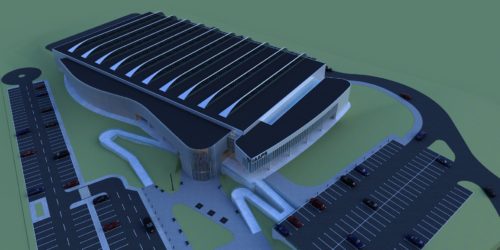Since the creation of the UK’s network of Local Enterprise Partnerships (LEPs) back under the coalition government in 2011, a renewed onus on partnership working between local authorities, industry and academia has been at the forefront of plans to stimulate economic development and jobs recovery. Five years on, the 39 LEPs spanning the country have evolved as champions of research infrastructures to drive innovation.
Here in the West of England our LEP has been proactive in recognising the opportunity to respond to the needs of several automotive businesses. Ford and JLR, alongside their supply chain companies, want to continue to access the unique ‘systems integration’ expertise at the University of Bath, to develop the future generations of low carbon vehicles: vehicles that could be autonomous, contain multiple propulsion technologies, and are affordable.
Our LEP, like industry, want the synergy between our academic expertise, large scale state of the art facilities, and the economic benefits in jobs and gross value added. They recognise the unique opportunity to reap the rewards of such collaborative working through our proposal for the Institute for Advanced Automotive Propulsion Systems (IAAPS). IAAPS shows how and why this nexus between research excellence, business innovation and economic development, the so-called ‘Triple Helix Model’, helps generate powerful results for all partners involved.

Alongside the West of England LEP
This is because, by working on our proposals in partnership, IAAPS aligns with the West of England LEP’s priorities, as outlined by its latest Strategic Economic Plan. IAAPS will provide resilience to the Advanced Engineering expertise in the Aerospace and other sectors, where high value design and integration (technology and talent) will become increasingly interrelated.
In no area is this truer than in developing the West of England’s advanced engineering industries where with the appropriate skills provisions, our region has distinct competitive advantage which brings the enormous potential for sustainable future jobs growth too. The Bristol & Bath Science Park is an obvious location for several facilities, developing an Advanced Engineering Campus.
Through a £50 million capital investment, IAAPS can support 1,900 new jobs and safeguard thousands more. These are high value jobs, each providing significant productivity gains worth around £50,000 per employee: higher wages means a more prosperous regional economy. And through IAAPS we’ll be creating unrivaled training opportunities, including through new PhDs and apprenticeships, helping us now and in the future.
This sustained economic growth will rely on the success of our small businesses and support for our SMEs remains another key priority area for the LEP. With Brexit, IAAPS will reassure both large foreign-owned manufacturers to continue to invest in the design and integration of future powertrain developments, which will grow the indigenous SME supply chain. Providing a collaborative and open platform for SMEs and start-ups, IAAPS will help build and expand their business.
From our work we know IAAPS has the potential to attract millions of pounds of private sector investment from this country and from abroad. This will be a success story for the University but also for our local partners and industry collaborators. It’s an example of the level of engagement required to unlock new funding and one that we should follow as we explore future priority areas for partnership working.
Watch our new IAAPS video
Dr Jon Hunt is Director, Research & Innovation Services (RIS) at the University and part of the IAAPS project team.
Respond